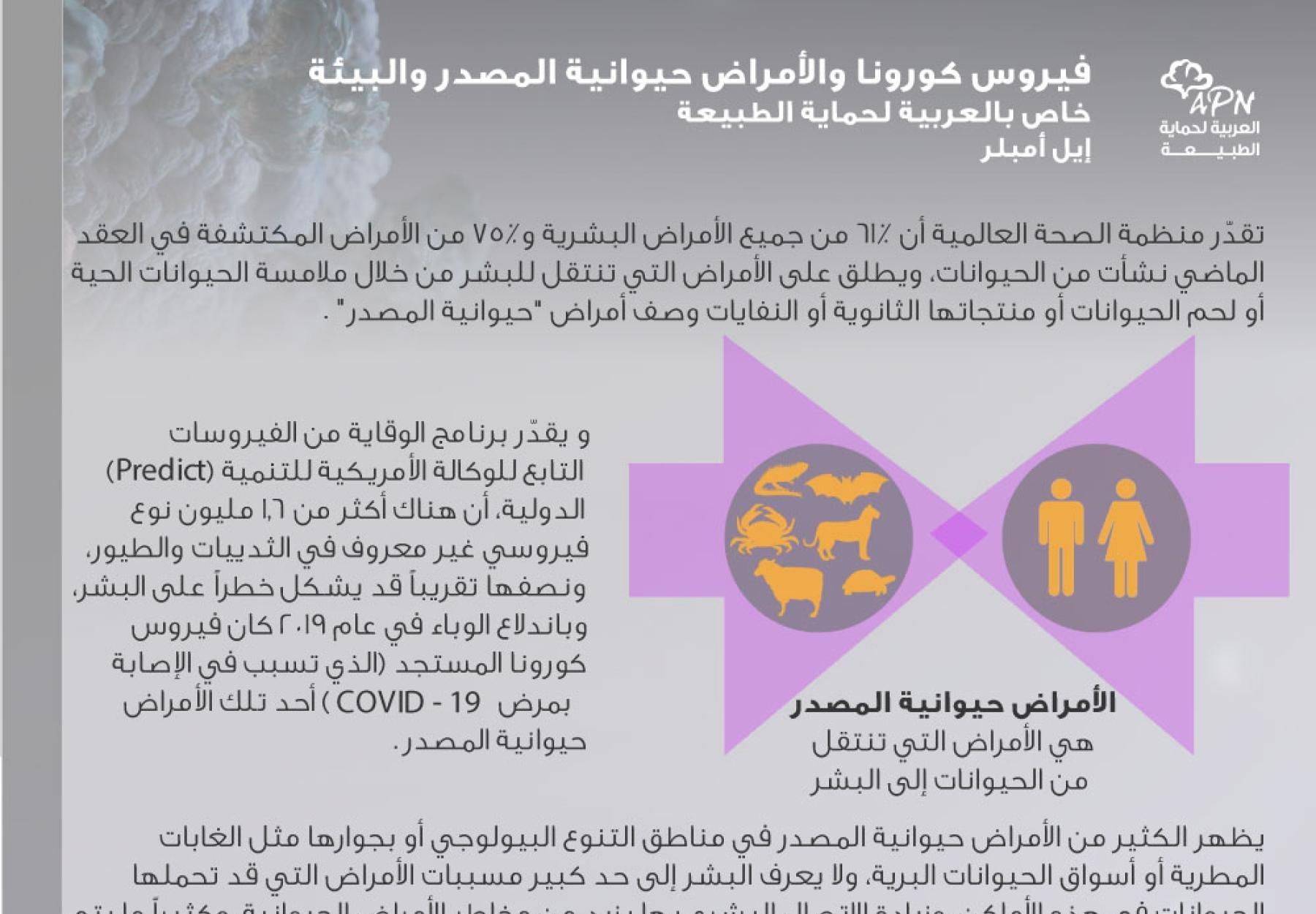
A new study conducted by the Arab Group for the Protection of Nature, titled “Zoonoses and the Environment,” addresses key dimensions of animal-originating disease and shows their relationship to flaws in our global food system. It discusses long food supply chains, the role of the now infamous “wet markets” in local economies, and the dangers of industrial agriculture. It explains why many outbreaks occur after landscapes are cleared for industry and how urban policy decisions can make populations more vulnerable when diseases do emerge.
The research stresses the need to strengthen local economies and expand local, sustainable agriculture. It calls for a rethinking of the inequalities in our cities and for further support for rural areas. The report also looks ahead to the increased viral risks posed by climate change, giving us another set of reasons to limit ecologically exploitive industry.
The report outlines the current political dimensions of the virus. It notes the opportunism of the Israeli occupation’s response to the pandemic, including the imposition of further surveillance on Palestinians and the blocking life-saving provisions. The Israeli response is placed against a backdrop of the disproportionate effects disease carries for politically marginalized peoples and warns of the lessons political actors may take away from this moment.
Download and read the full paper on this link